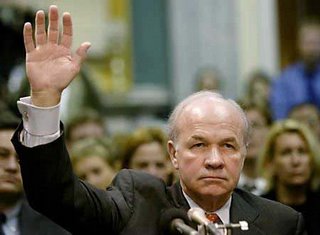I have been unusually fortunate in that neither I nor anyone in my immediate family have ever been extremely ill. My mother recently commented that some unknown ancestor of my father’s must have done something right because, as a whole, my clan has been overwhelmingly hearty. This prodigious health has generally been shared by everyone on my father’s side of the family, including my grandfather, who lived much longer than average. Yet, his death has become a sensitive subject for his children because it is believed by some of them to have been expedited by quietly racist healthcare treatment.
In the fall of 2001, my paternal grandfather died in a Southside Chicago hospital room. Although, towards the end of his life, he battled many illnesses, he officially succumbed to a myocardial infarction – a standard heart attack. He was 96 years old.
My grandfather was born in Alabama in 1906 to Morris and Ruby. He was their first child and would, eventually, become the oldest of nine. At the time of his birth, The Civil War had only ended 41 years earlier and Southern attempts at Reconstruction had been abandoned a mere 29 years beforehand. Life in the South for African-Americans at that time was almost unendurable. Of the many racist atrocities that my grandfather suffered and witnessed, one of the stories he told was particularly upsetting. When he was about seventeen years old, he was walking on a road with his friend when a group of whites drove by in a car. Although my grandfather and his companion stepped aside to allow them to pass, the driver of the car yelled out a racist obscenity and intentionally attempted to run the boys over. My grandfather managed to avoid the car but his friend was not so fortunate. The car struck and killed him. No charges were filed and the family of the child who was murdered received no justice or compensation. My grandfather talked about this incident without anger or sadness. This, according to him, was simply the lot of Southern blacks at that time.
My grandfather rarely discussed his parents (I later learned that this reluctance to reveal any information about one’s family was not unique to him. Many African-American Southern expatriates of his generation eschewed self-disclosure. For them, the less strangers knew, the less trouble it could lead to) so not much is known about Morris and Ruby. What is common knowledge is that – for reasons unknown, but probably due to financial hardship – Morris and Ruby packed up and moved North to the Chicago area during the first World War. They, like many newly transplanted African-Americans settled on Chicago’s South Side and Morris found work in a meatpacking plant. Prior to moving to Chicago, Morris worked, occasionally, as a carpenter and was reluctant to abandon a skill that he believed to be infinitely more valuable than factory work. It can be surmised that my great-grandfather was an ideological student of Booker T. Washington, who promoted the idea that the road to black self-betterment was through the acquisition of vocational skills. As soon as he was able, Morris left the factory and worked as a carpenter – a trade that he convinced young Arthur to pursue as well.
My grandfather recalls that he took to carpentry, “like a fish to water,” and soon became a talented carpenter in his own right. Morris and Arthur worked as father and son until Morris’s death in the mid 1930s. As the oldest child, it fell on my grandfather to become the primary provider for Ruby and all of the children. This he did with great focus and maturity. In addition to carpentry, he became a barber and, later, a mechanic. It was these skills that enabled his family to survive the loss of his father and negotiate the Depression.
In fact, my grandfather was a man who was rich in skills. As an adult, he moved to Gary, Indiana and built his own house, a house that still stands and functions to this day. He wired it with electricity, installed the plumbing system, built a screened-in porch and planted a prosperous garden. Yet, as sociologist Kai T. Erikson explains, my grandfather was “uncomfortable in those corners of the universe where words and symbols have replaced everyday experience as the coin of intelligence.” As a result, in later years when his hands betrayed him and manual dexterity left, my grandfather found that he lacked the transferable skills to keep himself and his own family afloat like he had done with his mother and siblings. For the last roughly twenty-five years of his life, my grandfather, always a proud, independent man, was forced to rely upon several of his children to make ends meet.
I was not present for the death of my grandfather. I was told that he was at peace and was “ready to leave.” Yet, my father and a few of my uncles are convinced that my grandfather received a different class of care. They argue that more assertive medical treatment and an emphasis on preventative care could have prolonged his life. According to them, it was as if my grandfather’s healthcare providers had determined that 90 years on this Earth was enough for a black man and let his health deteriorate. They believe that if my grandfather had been white, he would probably still be alive today. Obviously, my family will never be able to ascertain whether or not this is the truth. But the fact that my grandfather’s physicians were all white, and that white physicians are generally more likely to administer thorough examinations to whites than they are to blacks, makes my father and his brothers skeptical that every measure was taken to preserve his life.
I have always found it amazing that my grandfather lived such a long life given all that he’d experienced. It has only recently occurred to me that perhaps the reason my grandfather lived so long is because he never seemed bitter. He never seemed to internalize any of the destructive racist barbs that society aimed at him and everyone he knew. I asked my father why this was so and he said that it would simply have been suicidal to my grandfather and his family for him to fixate on racial issues. In a very real sense he had to rely on whites for his survival. He intrinsically recognized that it would be unhealthy for him to harbor animosity towards them. As a result, he regarded whites with suspicion but never resentment. Further, although he did prepare his children to face a world in which many would be acrimonious to them because of the color of their skin, he did not teach them to hate or fear. It is, therefore, both tragic and ironic that the circumstances surrounding his death have left his children feeling anger and bitterness.




